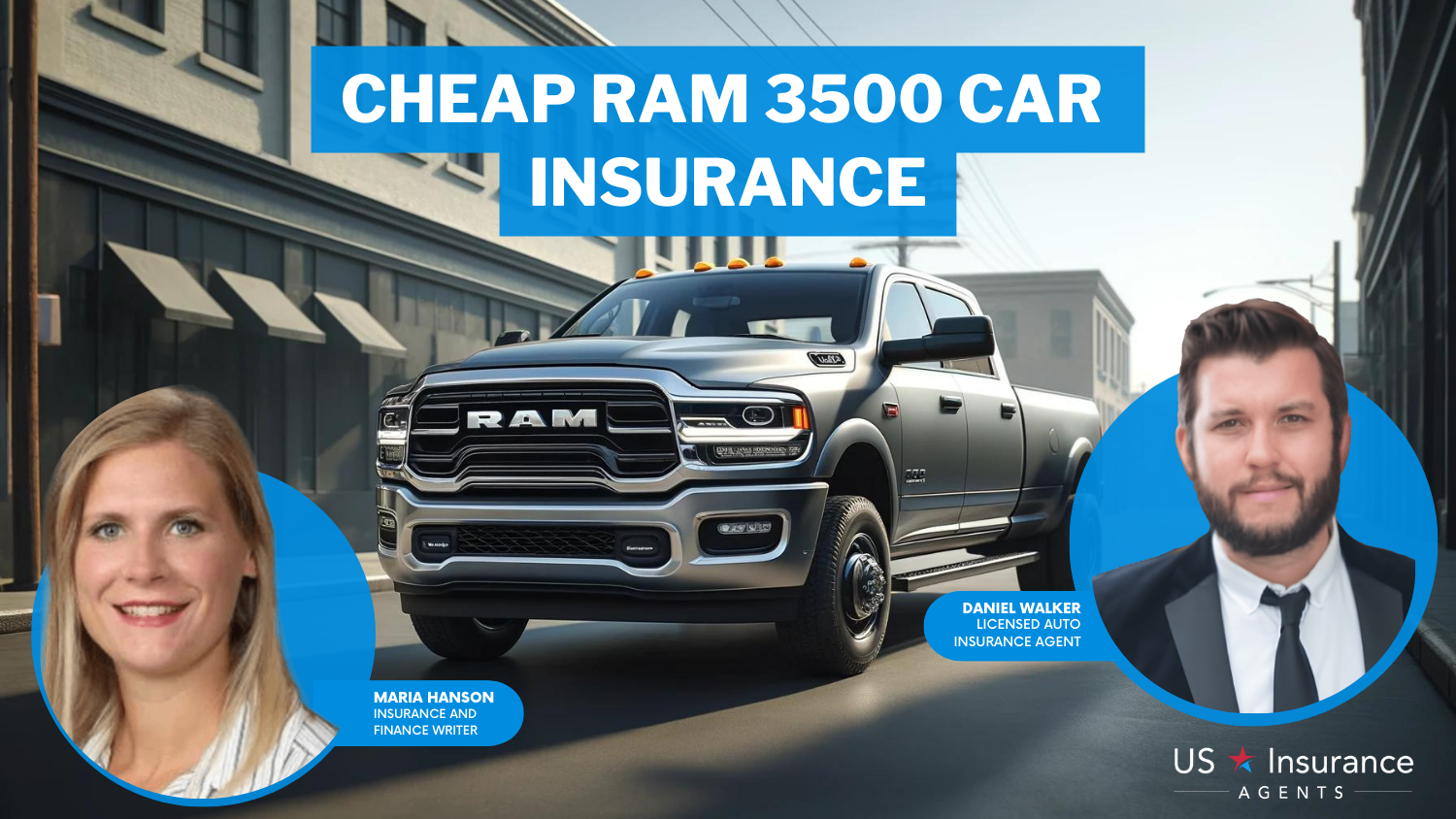Does my car insurance cover damage caused by an uninsured driver if I have collision coverage?
Does my car insurance cover damage caused by an uninsured driver if I have collision coverage? Find out if your policy protects you against accidents with uninsured motorists and how to navigate the claims process.
Read more Secured with SHA-256 Encryption





Table of Contents
Table of Contents


Licensed Insurance Agent
Kristen is a licensed insurance agent working in the greater Boston area. She has over 20 years of experience counseling individuals and businesses on which insurance policies best fit their needs and budgets. She knows everyone has their own unique needs and circumstances, and she is passionate about counseling others on which policy is right for them. Licensed in Massachusetts, New Hampshire,...
Kristen Gryglik


Licensed Insurance Agent
Chris is the founder of Abrams Insurance Solutions and Marcan Insurance, which provide personal financial analysis and planning services for families and small businesses across the U.S. His companies represent nearly 100 of the top-rated insurance companies. Chris has been a licensed insurance agent since 2009 and has active insurance licenses in all 50 U.S. states and D.C. Chris works tireles...
Chris Abrams
Updated January 2025
Car insurance is a necessity for all drivers, as it provides financial protection in the event of an accident or damage to your vehicle. One question that often arises is whether car insurance covers damage caused by an uninsured driver, especially if you have collision coverage. In this article, we will explore the various aspects of car insurance coverage, collision coverage, and how it relates to uninsured drivers.
Understanding Car Insurance Coverage
Car insurance coverage is an essential aspect of owning a vehicle. It provides financial protection in the event of accidents, damage, or theft. One of the key types of coverage is collision coverage, which protects your vehicle when it collides with another vehicle or object.
What is Collision Coverage?
Collision coverage is an optional insurance policy that can prove invaluable in situations where your vehicle is damaged, and you are determined to be at fault. It covers the cost of repairing or replacing your vehicle, up to the policy limits, regardless of who is at fault.
Imagine you’re driving down the road, and suddenly, you collide with another car. The impact causes significant damage to your vehicle. In such a scenario, collision coverage comes to your rescue. It ensures that your insurance company will take care of the repair or replacement costs, easing your financial burden.
Collision coverage extends beyond accidents involving other vehicles. It also applies to accidents with stationary objects, such as hitting a lamppost or a fence. Additionally, it covers single-vehicle accidents, such as when you collide with a tree or end up in a ditch.
Comprehensive vs. Collision Coverage
While collision coverage provides protection against accidents, there is another type of coverage called comprehensive coverage. Comprehensive coverage safeguards your vehicle against damage caused by non-collision events.
Comprehensive coverage is essential for protecting your vehicle from various risks, including theft, vandalism, fire, flooding, and other natural disasters. For example, if your car gets stolen from a parking lot or is damaged by a severe hailstorm, comprehensive coverage will come to your rescue.
However, it’s important to note that comprehensive coverage does not extend to uninsured drivers. If you want coverage for damage caused by an uninsured driver, collision coverage is the type of coverage you need to consider. It ensures that you are financially protected even if the other driver does not have insurance.
When choosing between comprehensive and collision coverage, it’s crucial to assess your individual needs and the risks you face. Both types of coverage provide valuable protection, but understanding the differences will help you make an informed decision.
In conclusion, collision coverage is a vital component of car insurance. It offers financial security by covering the costs of repairing or replacing your vehicle in the event of a collision. Additionally, comprehensive coverage protects your vehicle from non-collision events, such as theft or natural disasters. By understanding these types of coverage, you can make an informed decision and ensure that you have the right insurance to safeguard your vehicle.
Free Auto Insurance Comparison
Compare Quotes From Top Companies and Save
Secured with SHA-256 Encryption
How Collision Coverage Works
Collision coverage is an important component of auto insurance that provides financial protection in the event of an accident. It comes into play when you are involved in a collision and it is determined that you are at fault or the other driver does not have insurance. In such cases, your collision coverage will cover the cost of repairs to your vehicle, after you pay the deductible.
A deductible is the amount you agree to pay out of pocket before your insurance starts covering the costs. The higher the deductible you choose, the lower your insurance premium will be. It’s essential to carefully consider the deductible you select, as it will directly impact your out-of-pocket expenses in the event of an accident.
When you have collision coverage, you can have peace of mind knowing that your insurance will assist you in getting your vehicle repaired, regardless of who is at fault. This coverage is particularly valuable if you rely on your vehicle for daily transportation or if you have a newer or more expensive car that would be costly to repair or replace.
When Collision Coverage Comes into Play
Collision coverage is designed to kick in when you are involved in an accident where your vehicle sustains damage. Whether it’s a fender bender or a more serious collision, this coverage can help alleviate the financial burden of repairing your vehicle.
Imagine you’re driving on a rainy day, and the roads are slippery. Suddenly, the car in front of you slams on the brakes, and you don’t have enough time to stop. Unfortunately, you collide with their vehicle, causing damage to both cars. In this scenario, your collision coverage would come into play to cover the repairs to your vehicle.
Similarly, if you accidentally hit a stationary object like a tree or a pole, your collision coverage would also apply. It’s important to note that collision coverage is not limited to accidents involving other vehicles; it extends to any collision that causes damage to your car.
Limitations of Collision Coverage
While collision coverage provides an excellent safety net, it does have limitations. One important limitation to keep in mind is that collision coverage only covers damage to your vehicle and does not provide coverage for any injuries or damages to other people or their property.
For example, if you collide with another vehicle and the other driver sustains injuries or their car is damaged, your collision coverage will not cover these costs. In such cases, liability coverage would come into play, which is a separate type of auto insurance that covers injuries and damages to others if you are at fault in an accident.
Another limitation to consider is that collision coverage may not cover the full cost of repairs in certain situations. Insurance companies often have guidelines on the maximum amount they will pay for repairs, which is known as the coverage limit. If the cost of repairs exceeds this limit, you may be responsible for covering the remaining expenses out of pocket.
Lastly, if you are involved in an accident with an uninsured driver and do not have uninsured motorist coverage, you may be responsible for any damages or injuries sustained by the other party. It’s important to review your policy and consider adding uninsured motorist coverage for added protection in these situations.
Understanding the limitations of collision coverage can help you make informed decisions when choosing your auto insurance coverage. It’s important to assess your individual needs, budget, and risk tolerance to determine the right level of coverage for you.
Dealing with Uninsured Drivers
The Prevalence of Uninsured Drivers
Unfortunately, uninsured drivers are a reality on the roads today. According to the Insurance Information Institute, it is estimated that around 13% of drivers in the United States are uninsured. This means that if you are involved in an accident, there is a chance that the other driver may not have insurance to cover the damages.
Driving without insurance is illegal in most states, but that doesn’t stop some individuals from taking the risk. There are various reasons why someone might choose to drive without insurance. Some individuals may simply not be able to afford the high cost of insurance premiums, while others may intentionally choose to forego coverage, thinking they won’t get caught. Regardless of the reasons, the fact remains that uninsured drivers pose a significant risk on the roads.
When an uninsured driver causes an accident, it can be a frustrating and stressful situation for the insured party. Not only do they have to deal with the physical and emotional aftermath of the accident, but they also have to navigate the complex process of seeking compensation.
What Happens When an Uninsured Driver Causes an Accident
If you are involved in an accident where the other driver is uninsured and you have collision coverage, you can still move forward with your insurance claim. Your insurance company will cover the cost of repairs to your vehicle, minus the deductible.
Having collision coverage can provide peace of mind in such situations. It ensures that you are not left solely responsible for the financial burden of repairing or replacing your vehicle. However, it is important to note that even with collision coverage, there may still be out-of-pocket expenses, such as the deductible.
On the other hand, if you do not have collision coverage, the burden of paying for repairs falls on you. This can be a significant financial setback, especially if the damages are extensive. In such cases, it is essential to explore other options for compensation.
One option is to pursue a lawsuit against the uninsured driver. By taking legal action, you can seek compensation for property damage, medical expenses, and other losses resulting from the accident. However, it is important to keep in mind that even if you win the lawsuit, there is no guarantee that the uninsured driver will have the means to pay the awarded damages.
Another option is to file a claim with your state’s uninsured motorist fund, if available. Some states have established funds to provide compensation to individuals who are involved in accidents with uninsured drivers. These funds are typically supported by fees collected from insured drivers and can help alleviate some of the financial burden.
It is crucial to consult with an attorney or insurance professional to understand the specific laws and options available in your state. They can guide you through the process and help you make informed decisions.
Dealing with uninsured drivers can be a challenging and complex situation. It underscores the importance of having adequate insurance coverage to protect yourself and your vehicle. Additionally, practicing defensive driving techniques and staying vigilant on the roads can help reduce the risk of being involved in an accident with an uninsured driver.
Collision Coverage and Uninsured Drivers
Does Collision Coverage Protect Against Uninsured Drivers?
While collision coverage provides protection for damage caused by accidents, it does not specifically protect against uninsured drivers. Collision coverage mainly focuses on damage to your vehicle, regardless of who is at fault. It does not extend to cover injuries or property damage caused by uninsured drivers.
If you are concerned about protecting yourself and your vehicle against uninsured drivers, it is worth considering adding uninsured motorist coverage to your policy. Uninsured motorist coverage steps in to cover your medical expenses and property damage in the event of an accident with an uninsured driver.
Scenarios of Collision Coverage Application
There are specific scenarios where collision coverage can be beneficial even if the other driver is uninsured. For example, if you are involved in a hit-and-run accident and the other driver flees the scene, collision coverage can help cover the costs of repairs to your vehicle, even if the other driver cannot be identified or does not have insurance.
Overall, while collision coverage does not directly protect against uninsured drivers, it can still provide valuable coverage in various scenarios where your vehicle is damaged.
Free Auto Insurance Comparison
Compare Quotes From Top Companies and Save
Secured with SHA-256 Encryption
Other Insurance Options for Uninsured Driver Accidents
Uninsured Motorist Coverage
Uninsured motorist coverage is an additional type of coverage that can be added to your car insurance policy. This coverage compensates you for injuries and property damage caused by an uninsured or hit-and-run driver.
Uninsured motorist coverage helps ensure that you are not left with significant medical expenses or repair costs if you are involved in an accident with an uninsured driver. It provides added protection and peace of mind.
Underinsured Motorist Coverage
In addition to uninsured motorist coverage, underinsured motorist coverage is also available. This type of coverage steps in when the at-fault driver’s insurance coverage is not sufficient to cover your damages fully.
Underinsured motorist coverage protects you in cases where the at-fault driver has insurance, but the coverage limits are not enough to cover the expenses related to your injuries or property damage. It helps make up the difference between the at-fault driver’s coverage limits and your actual damages.
In conclusion, collision coverage is vital for protecting your vehicle in the event of an accident, regardless of whether the other driver has insurance. While collision coverage may not directly protect against uninsured drivers, it ensures that your vehicle’s repairs are covered after you pay the deductible. To enhance your protection, consider adding uninsured motorist coverage or underinsured motorist coverage to your policy. Both of these options provide additional peace of mind and financial security in situations involving uninsured or underinsured drivers.
Remember to review your insurance policy carefully and consult with your insurance agent to ensure you have the right coverage for your needs. Compare insurance quotes with our free tool and review insurance rates from different companies online to save money and find the best rates.
Frequently Asked Questions
Does my car insurance cover damage caused by an uninsured driver if I have collision coverage?
Yes, if you have collision coverage, your car insurance policy may cover damage caused by an uninsured driver. Collision coverage is designed to help pay for repairs to your vehicle in the event of a collision, regardless of who is at fault.
What is collision coverage?
Collision coverage is an optional type of car insurance coverage that helps pay for repairs to your vehicle if it is damaged in a collision, regardless of fault. It typically covers damage caused by accidents with other vehicles, objects, or rollovers.
Will my collision coverage cover damage caused by an uninsured driver?
Yes, in most cases, collision coverage will cover damage caused by an uninsured driver. However, it is important to review your specific policy terms and conditions to confirm the coverage details.
What should I do if I am involved in an accident with an uninsured driver?
If you are involved in an accident with an uninsured driver, it is important to follow the standard accident procedures. This includes documenting the incident, exchanging information with the other driver, and reporting the accident to your insurance company. They will guide you through the claims process and determine if your collision coverage applies.
Will my collision coverage cover the full cost of repairs?
It depends on the terms of your collision coverage and the extent of the damage. Collision coverage typically has a deductible, which is the amount you are responsible for paying out of pocket before your insurance kicks in. Your insurance company will cover the remaining cost of repairs, up to the actual cash value of your vehicle.
Is collision coverage mandatory?
No, collision coverage is not mandatory. It is an optional coverage that you can choose to add to your car insurance policy. However, if you have a loan or lease on your vehicle, your lender or leasing company may require you to carry collision coverage until the loan or lease is paid off.
Get a FREE Quote in Minutes
Insurance rates change constantly — we help you stay ahead by making it easy to compare top options and save.




